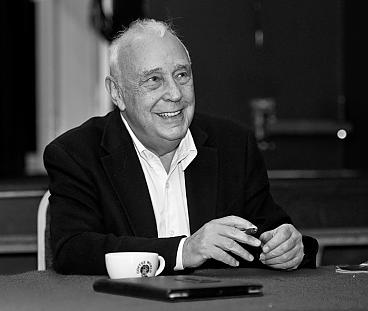Basic goods (III) – Security
Basic goods (III) – Security

Robert Skidelsky, photo Chris Boland, CC
In each part of this series of ‘summer blogs’, one of the basic goods identified by the Skidelskys in their book How much is enough? takes centre stage. Instead of a society in which everything is determined by the market and by an everlasting hunger for more money and more consumer goods, the Skidelskys search for a different kind of society, one which revolves around truly essential things. Having dealt with health, respect and friendship, this time I will look at ‘security’.
The Skidelskys define security as ‘an individual’s justified expectation that his [sic] life will continue more or less in its accustomed course undisturbed by war, crime, revolution or major social and economic upheavals’. The word ‘revolution’ is striking in this summary list, because in the book as a whole the Skidelskys themselves argue in favour of a radical change in society. Although they don’t explain this in any more detail, I assume that they refer here to bloody revolutions and not to their desired change in thinking.
It’s often said that the European Union has brought peace and security. Immediately after the Second World War this was true. The binding of Germany and France to each other by means of common regulation of coal and steel – two commodities which are needed if you are going to fight a war – meant that things became relatively calm. On the other hand, the EU has increasingly become a symbol of the endless quest for new markets. Treaties concluded with developing countries have, amongst other things, forced these countries to open their borders to European products. In addition, Brussels has transferred more and more things to the market which belonged in the past to all of us: the postal service, for example, telecommunications, electricity supply and in some places public transport.
With this aggressive hunger for more markets, Brussels has long undermined our security. Increasingly, society is becoming a permanent battle, or more precisely a permanent competitive struggle where all that matters is that you ‘get the best out of yourself.’ Pity for those who need a bit of support.
In its relations with non-EU countries also, Brussels is definitely not as peace-loving as the image it presents. Brussels’ meddling in Ukraine is not motivated by sincere concern for the fate of the people there. What’s primarily involved was a battle with Russia for Ukrainian markets. The Association Agreement recently concluded with this country by the EU, opened the market there to Europe. Of course Ukraine received in exchange more access to the European market, but because economic development there is much less advanced than that of the EU, this is no level playing field. It will be a very long time before Ukraine can cope with this competition, and one can already see taxes being shifted on to workers and other ordinary people. Lower wages and fewer public services are the well-known ‘remedy’. Brussels’ interference in Ukraine has also increased tensions with Russia, and stirred up conflicts in Ukraine hugely. Security is, in view of this, not the word.
If Brussels took the basic good that is security seriously, it would first of all have to put an end to its aggressive external policies. Relations with countries elsewhere in the world should serve to bring mutual advantages. This means ceasing to rob developing countries and others who cannot yet compete with the EU’s competitiveness. Inside the European Union itself what should be worked towards is a real society, one in which nobody feels economically or socially excluded. That demands a revolution in socio-economic thinking.
- See also:
- Dennis de Jong
